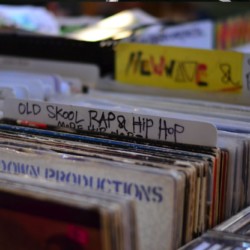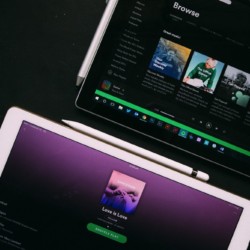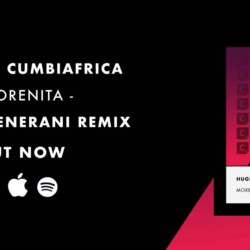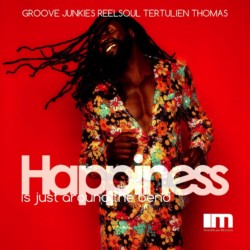Wæde Wätts have had quite the journey finding their musical feet and eventually finding each other. With a collective amount of 20 years producing music, Matt and Jerry give an in-depth interview full of their top tips for budding producers to follow and their journey of how they got to where they are today. Check out below to see what the guys had to say.
First off, how did you learn how to produce music?
MJB: I just kind of started when I was 16 without having any idea what I was doing. I would just copy what I heard other people doing… It was like the Wild West back in those days. Not everyone and their mother was a DJ, and even fewer people were producers. I have never had any formal training other than learning from my friends, and learning directly from Jason Ross, Daniel Davis (Fatum/Judah), Leo Lauretti and Myon. It blows my mind that this all started 13 years ago.
Jerry: I first started in 2011-2012. The first challenge was learning to produce on Ableton. Learning your DAW is the first step but some DAW’s have a steeper learning curve. After a year of struggling on my own I enrolled in the Masters of Music Production from Dubspot University. The main points that I was taught was Music Theory, Musical Arrangements of Different Genres, Sound Design & Effects Processing then finally Mixing & Mastering. It was a great thing to learn and the thing that improved my productions the most was Mixing & Mastering. If you are an aspiring producer I would really try to suggest you to focus on mixing and mastering.
Can you recommend any websites/apps/videos that are good to learn from?
MJB: Usually Cosmic Academy is pretty good, right? Other than that, what can’t you learn on Youtube? I sincerely think these master classes are more important for the network that you gain, not the knowledge. Knowing people can take you a long way. I would know. I’m not the most talented producer out there, but I know the right people who have helped me get my music where I want it to be.
Jerry: Before enrolling in Dubspot I used a guy named “Sadowick Productions”. He covers Ableton on every level really cutting the learning curve. The guy is amazing. If you are looking to get into production I think that the most important thing to consider is a learning environment with a great chance to build a network. Cosmic Academy, I have heard are great for that. The faster you can build bridges with lots of people the quicker your music will pick up traction. Sonic Academy is another great resource where you can buy “how to produce X genre” with incredible instructors who make incredible music. Soundprank and Bjorn Akesson are some of the biggest names. We typically produce trance/progressive so that’s why I like those guys.
What’s the most important thing to keep in mind when making music?
MJB: To not fall into the trap of tailoring your music too much to a label. To a certain extent you have to, but there’s a line that you shouldn’t cross where your music no longer is your music.
Jerry: This may be an earful because there are a lot of important things to remember to make your life easier. Just have fun and really bounce to the grooves you build and create. Really enjoy each moment of what you’re writing and try to visualize what settings you think you music will fit well in. Try not to put unnecessary pressure on yourself to finish tracks as fast as you can. Quality over quantity is such an important thing to remember when building your brand and releasing your music. If a project isn’t really going anywhere and you’re struggling to finish the idea, just try to make things in a few different genres or try to totally recreate a song that you really like and hope to sound similar to.
What are the essentials that any beginner producer needs to have?
MJB: A DAW, some good drum samples, a midi keyboard, and a basic knowledge of Music composition. Plus a fire to create things
Jerry: Excitement to get into the studio and dream big. Then you need a computer, a DAW and headphones. That’s it. If Deorro was able to become one of the biggest progressive house/big-room producers in the world only using Ableton’s stock plug-ins then anyone can. You also should know why you want to do it. If you want to do it to be famous you can probably do it if that’s what you really want. Some people will try to tell you that your “why” isn’t good enough but don’t ever lose sight of your goals and trust the process. Regularly try to remind yourself that if you aren’t spending every moment you can to improve and release better music you there is someone else out there working harder than you. Work harder than anyone you know and you can have what ever you want out of life and your goals.
What are your opinions on sampling?
MJB: Sampling is what gets us to where we want to be. I sample in every single one of my productions. Now, there’s a way to do it so that it’s unique to YOU and I think that is an artform in itself.
Jerry: All of music production nowadays is based off of samples. If you use any VST with presets it’s all pretty much samples. So use them. If you can organically create your own sounds with VST’s that will help you sound more unique. But sometimes the best music comes from someone who takes and old sampled idea and turns it into something totally new and unique.
Check Madeon’s “Icarus” on YouTube to see how brilliant and fresh someone can reinvent using samples. He samples like 40 songs or something to create something that launched his career. Now if you totally copy an idea with samples and claim it as your own you should strive to have a little more musical integrity than that. Try to push your creative limits whenever you use samples.
Which part of the track do you find its best to start with?
MJB: A chord progression. If that flops, the whole song flops. You can have the coolest bassline, the best sounding drums, etc. but if your chords and melody aren’t good, there is no crux to the song! After that, I make some drum patterns and I fit a bangin’ bassline around that.
Jerry: I think writing a chord progression that really makes you feel something is a great way to start. I usually start with a “drop” section that is the most exciting part of the song. Then work down from there getting powerful bass lines. Again, we make trance/progressive-house/electro-house and starting with a chord progression works for me with those styles. Depending on your genre you can work from different angles. Tech-house for example. I always start with a bass line and groove.
How important is it to learn an instrument or music theory?
MJB: I typically play all my music by ear. To be honest, I think diatonic music theory is overrated. If you stay too much in that box, you really limit yourself. Of course, it should still sound good, but being so influenced by Jazz music, my philosophy is that it’s not the notes you play that are right or wrong, it’s the note after those notes that make it right or wrong… It’s called theory for a reason.
Jerry: I believe that any and all prior music knowledge will help make producing easier. However you don’t need to know how to play music like a concert pianist to make great music. Take Swedish House Mafia for example. I saw in an “in the studio” session that they all admitted that they can’t read music. Deadmau5 is the same thing. Trust your ears and over time you will learn what notes work with other notes and scales. If you really want to learn what keys your tracks are in set a goal of writing 5 songs in C then D, E, F etc… You’ll quickly learn that some notes in key G also work with a track in A. Don’t ever forget that at the end of the day music theory is really “theory”. You don’t have to follow the rules. You only need to love what you create and there will always be a listener for your music.
What is your go-to software for producing music?
MJB: My DAW is Logic. I use a combination of Samples, Serum, Sylenth, Nexus. The Fab Filter Suite is cool, and I like the Waves Maserati plugins too.
Jerry:
DAW: Ableton
VSTs/Plug-ins for Synth patches and creation: Serum, Sylenth, Massive
Mastering: Ozone 8, SSL Compressor
Secret Weapons: Oxford Inflator, Metric AB, Fabfilter Saturn Saturation and OTT
Do you think it’s essential for a producer to know how to mix and master?
MJB: Yes it’s the most important part (it’s why we are called producers), unless you’re one of those people with a lot of money who can just outsource everything. Have I had others mix and master my stuff? Yes. Have they always gotten it perfect? No. I won’t name any names, but not even some really big boys got my stuff right. I like to do it myself because, well, what’s the point of calling yourself a producer if you’re not producing?
Jerry: I think this is the most important part about producing. You can write the best melodies and progressions in the world but if your mix is muddy your song is dead in the water. If you have a really clean mix down you can make even the simplest of melodies and progressions sound incredible. Mixing and Master is number 1 in my opinion.
When do you know a track is ready to be released?
MJB: It has to go through a couple rounds of feedback and have a consensus on if it’s good or not. I have had a lot of terrible ideas that I never released because the consensus wasn’t there. That said, these are all people I trust and who I would take advice from, so I trust their opinions. Creating a network of people you trust like that is essential to being a producer. There are also some people that give feedback just to give feedback, and sometimes, it’s absolute trash.
Subjectivity plagues this industry, which is a gift and a curse. You just need to know who you trust. The “Future of Trance” group that I’m a part of on FB along with Jerry is a good starting point, but I branch out of that from time to time.
Jerry: Matt & I have a network of producers who are pros just about to break through to the main stage. When we can get the green light from at least 5 of them then we will let the song go. They all have such an incredible knowledge about listening to songs and picking out when the mixdown is clean and ready to go. Shout out to my “Future Of Trance” brothers! You guys are the best.
But if I can quote Oliver Smith, “Sometimes a track is never finished. You just have to let it go.”
Wæde Wätts Online
https://soundcloud.com/waedewatts
https://www.facebook.com/waedewatts
https://www.instagram.com/waedewatts/










